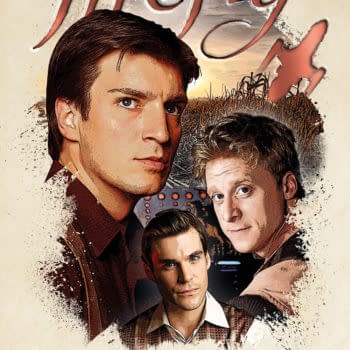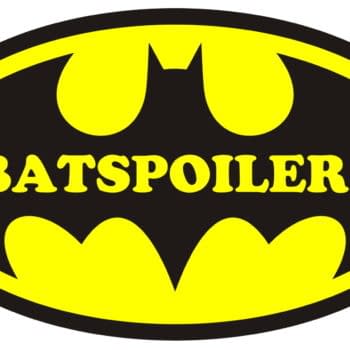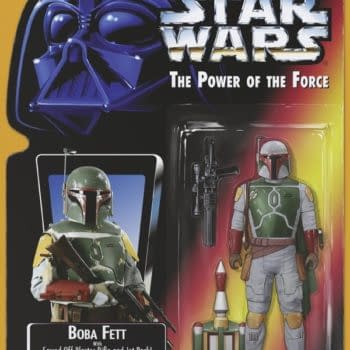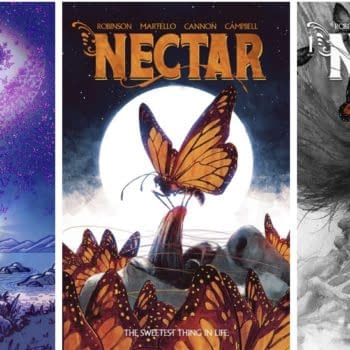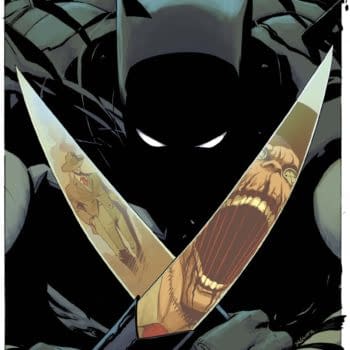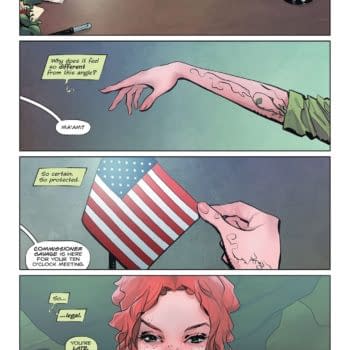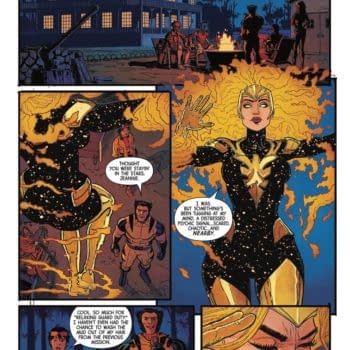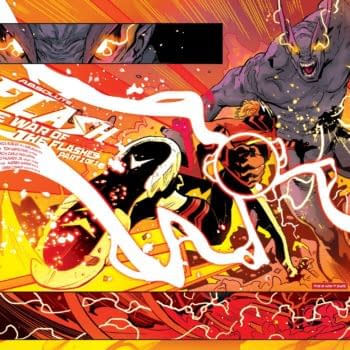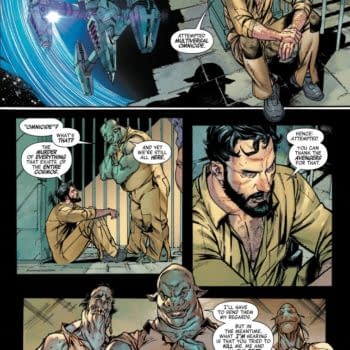Posted in: Comics | Tagged: Chaotic Neutral, Chris Anderson, dan panosian, dungeons and dragons, Jeff Johnson, Jeremy Haun, Jim Rugg, kickstarter, Kyle Strahm, Maan House, mark sable, Max Dunbar, ryan browne, tim seeley, Tom Neely
Mark Sable & Chris Anderson Launch Satanic Panic With Chaotic Neutral
Writing professor Mark Sable, co-creator of comics Grounded, Fearless, Hazed and Unthinkable, and writer for Heroes, Supergirl, Batman, Spider-Man, Hulk, and Fantastic Four, is co-creating a new comic book with Heavy Metal's Chris Anderson. Chaotic Neutral is set amongst the Satanic Panic of Dungeons & Dragons tabletop role-playing games of the eighties.
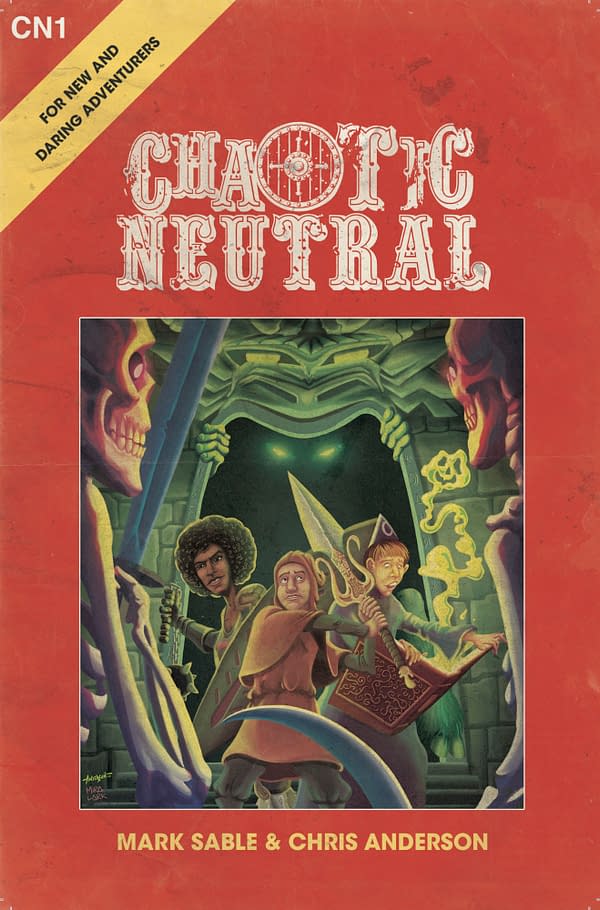
And will launch with a Kickstarter later this month, for a 48-page first issue accompanied by its own adventure module written by Mark Sable, that can be played using most old-school fantasy games. A chick tract-style comic by Ryan Browne, with a very specific message: comic books and RPGs will ruin your life. And Chaotic Neutral Monster trading cards by Max Dunbar, Jeremy Haun, Maan House, Jeff Johnson, Tom Neely, Dan Panosian, Jim Rugg, Tim Seeley, and Kyle Strahm in the form of an uncut trading card sheet, one side with art, while the other will contain stats for a campaign.
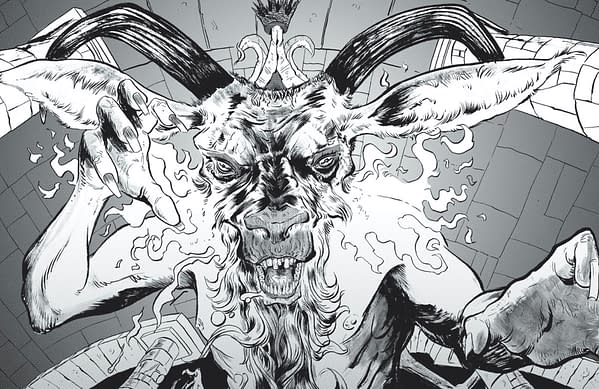
And ahead of its launch, Bleeding Cool has an exclusive look at some of Chris Anderson's artwork and the trading cards mentioned. Take a look and see if backing the Chaotic Neutral campaign is a role you'd like to play…
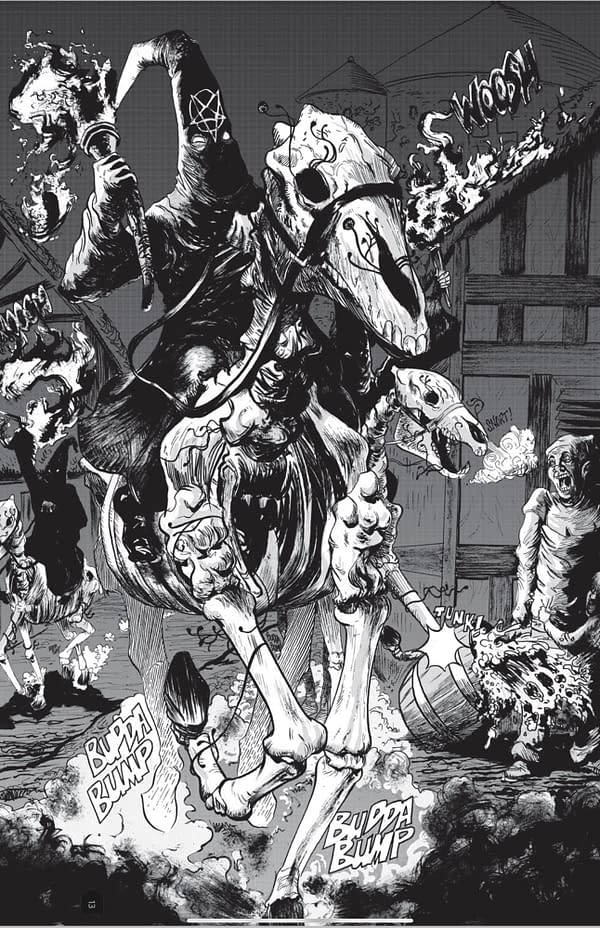
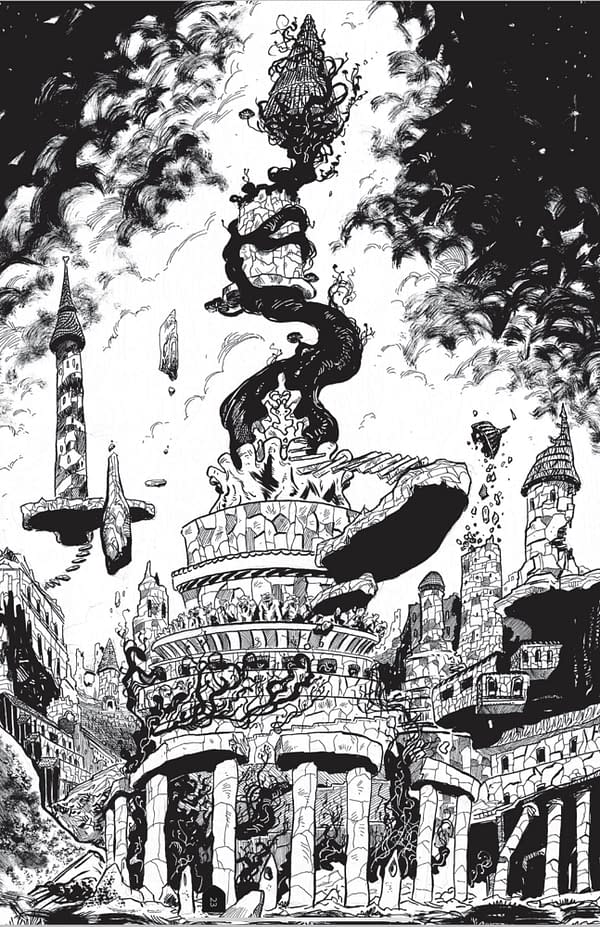
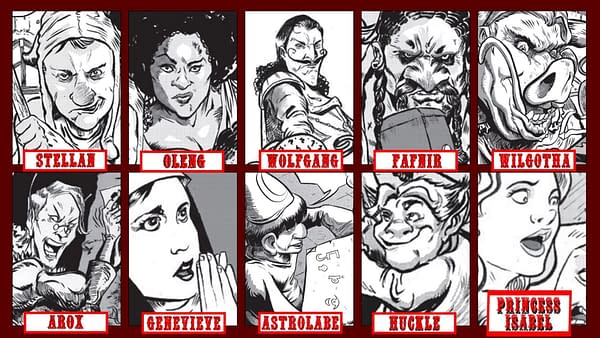
Kickstarter is an American public-benefit corporation based in Brooklyn, New York, that maintains a global crowdfunding platform focused on creativity. The company's stated mission is to "help bring creative projects to life". As of July 2021, Kickstarter has received nearly $6 billion in pledges from 20 million backers to fund 205,000 projects, such as films, music, stage shows, comics, journalism, video games, technology, publishing, and food-related projects. People who back Kickstarter projects are offered tangible rewards or experiences in exchange for their pledges. This model traces its roots to subscription model of arts patronage, where artists would go directly to their audiences to fund their work.






